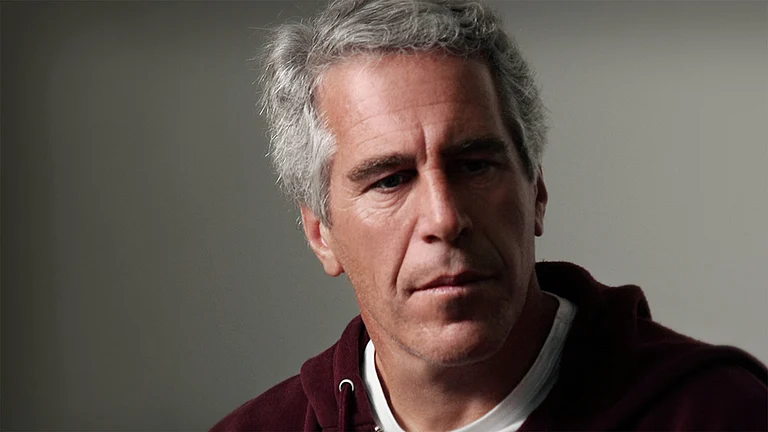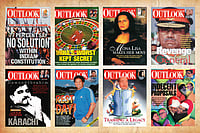WHEN Hakim Hafiz Abdul Majeed started his Unani clinic at Old Delhi's Lal Kuan in 1906, people flocked to him. After all, Unani, the Persian medical tradition he practised, had a respectable lineage, reputation for efficacy in this part of the world. As his practice flourished, the Hakim began Hamdard to professionally package and sell his Unani formulations. When he died in 1922, aged 39, he left behind two young sons, a fledgling company, little cash, much goodwill. Those two sons Abdul Hameed, 14, and Mohammed Said, an infant then, went on to turn the firm into a multinational force whose joint worth is estimated to be over Rs 160 crore. "Hamdard, India, is worth Rs 110 crore plus. Hamdard, Pakistan, is half our size turnover-wise," reveals Arif Hussain, marketing manager, Hamdard, India. Separately, the two brothers run identical firms, sell identical products in both nations. Mohammed Said migrated to Karachi in 1947. As elder brother, Delhi-based Bade Hakim Sahib, Abdul Majeed, 89, puts it: "1947 mein hamara bhi partition ho gaya tha."
Partition, yes. Competition, no. The brothers occasionally use each other as sounding boards. Says Bade Hakim Sahib's son Hamaad Ahmed: "My uncle and his daughter Sadia Rashid, who is the Ham-dard Pakistan chairperson, may call before launching a new product, saying: 'Yeh kar lein to theek rahega kya?'" Pakistan Ham-dard went global 10 years ago, a good eight years before the Indian concern. "Pakistan Hamdard went global 10 years ago and has a 10 crore annual turnover from that segment. We achieved that turnover in just the last two years," says Hamaad Ahmed. Both branches of the family are committed to propagating Unani globally. "We sell in West Asia, Canada, CIS countries, USA. They sell in England and Germany as well where we have yet to launch our operation," says Hamaad Ahmed. Hamdard India also has distributor outlets in Dubai, Oman, Saudi Arabia and Russia. Where the Pakistani division has stolen a march is in the launch of products like Aloe Vera syrup for liver ailments and Amalina, their popular fast-selling hairoil.
Both branches are doing exceptionally well. Safi blood cleansing tonic, cooling Roohafza sherbet, Hamdard Gripe water, Roghan Badam Shirin rejuvenator skin oil, as well as their Rs 11 breast firming ointment Zainad E Shabab are stuff clients on both sides of the border swear by. Arab clients are particularly faithful believers in the legendary properties of their Rs 1,000 aphrodisiac Kushta Tila Qalan.
Hamdard India now has 900 employees, two factories at Ghaziabad apart from the old one at Lal Kuan. Hamdard Pakistan has two factories in Karachi, another in Lahore and Peshawar. They run free mobile dispensaries, educational and charitable institutions. Hamdard India runs the Faculty of Islamic Studies, a hospital, a university, a public school.
Both brothers have been feted lavishly in their countries: Bade Hakim Sahib heads innumerable prestigious government bodies, Chote Hakim Sahib has been governor of Sindh and federal advisor to the president of Pakistan on ministerial status. Both firms seem to have a promising future. In Pakistan Sadia spearheads the expansion drive while in India Bade Hakim Sahib has appointed grandsons, Abdul Majeed, a management graduate, and Hamid Ahmed, a college student, to take over.
So does the Hamdard family in Delhi subscribe to its own medicine? "For major ailments one is so used to allopathy," confesses Hamaad Ahmed. But, his father, the Hakim Sahib, he reveals, still swears by the curative powers of Unani.


























